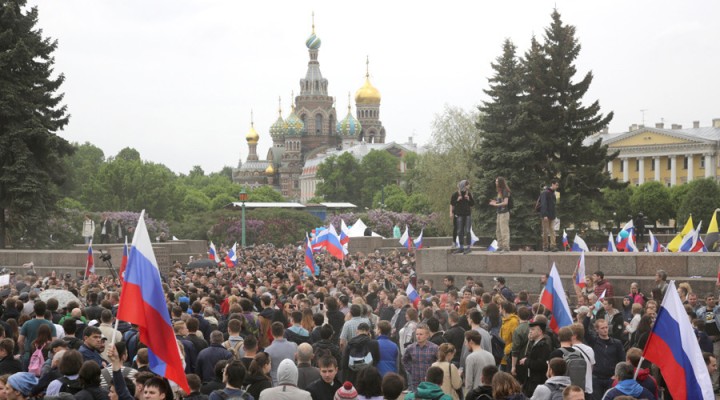GST PREPAREDNESS AMONG TRADERS A MAJOR CHALLENGE
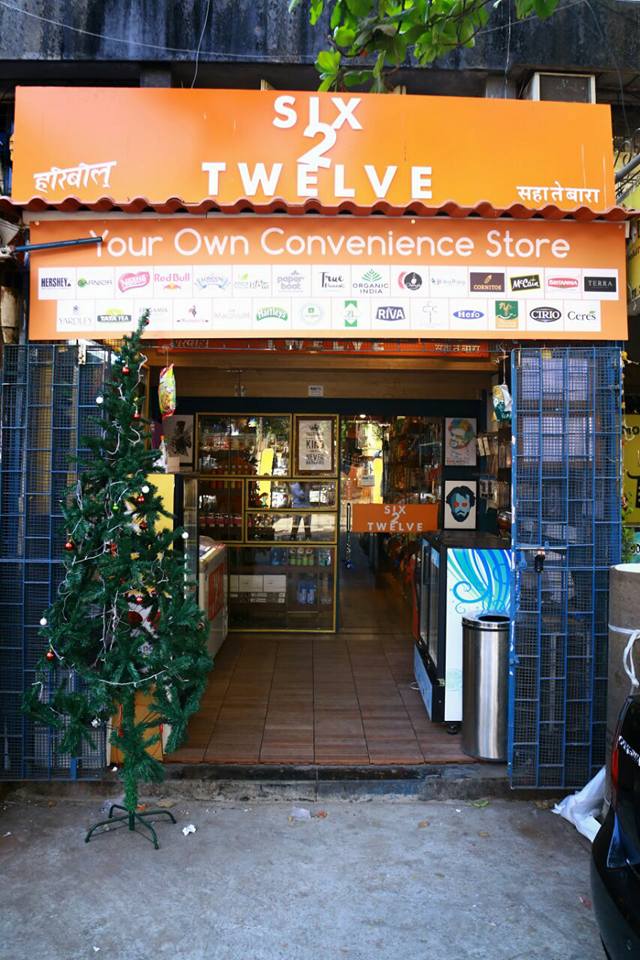
In the wake of implementation of GST in the Country from 1st July,2017, the preparedness at the level of small businesses is one of the major challenges. The proposed GST taxation system is entirely based on technology where not even a single paper will be used. The basic fundamentals of raising invoices, procedure of availing input credit, integration of goods & services, compulsory rating of each entity registered under GST are some of the key issues which are entirely different from current VAT tax regime.
On the other hand nearly 60% of small businesses in the Country have been devoid of digital technology and the basic challenge is that at a time when everything will be routed through digital technology under GST, how these large number of traders will be able to comply with GST from 1st July,2017. Empowerment of such large number of traders with technology in such a short span of time when only 19 days are left is quite impossible.
Calling it is as one of the major challenge, Mr Praveen Khandelwal, Secretary General of the Confederation of All India Traders (CAIT) which is strongly advocating GST in the Country said that education and empowerment of small businesses with basic fundamentals of GST and that of technology is certainly an important issue even from the fact that GST is a destination based taxation system where Consumer has to pay the tax and traders are the only last mile connect with Consumers and as such they have a significant role to play under GST.
Mr. Khandelwal said that till the time traders across Country are equipped with technology, some in between measures needs to be adopted to help the traders in compliance of GST through digital technology. He has suggested that Government should take Trade Associations across Country can be used as GST Facilitation Centre . Being in the markets itself, these locations would be much preferred by the traders. There is a need for the Government to reach out to Trade Associations. He has also suggested that Computer Kiosks can also be installed in commercial markets enabling the traders to do compliance against a nominal fee.
However, CAIT has suggested Trade Associations across Country to make clusters of 30 to 50 traders and connect them with an Accounting Professional who should assist traders in performing compliance obligations of all traders under the respective cluster.
CLEF HAS THREE MAIN OBJECTIVES,
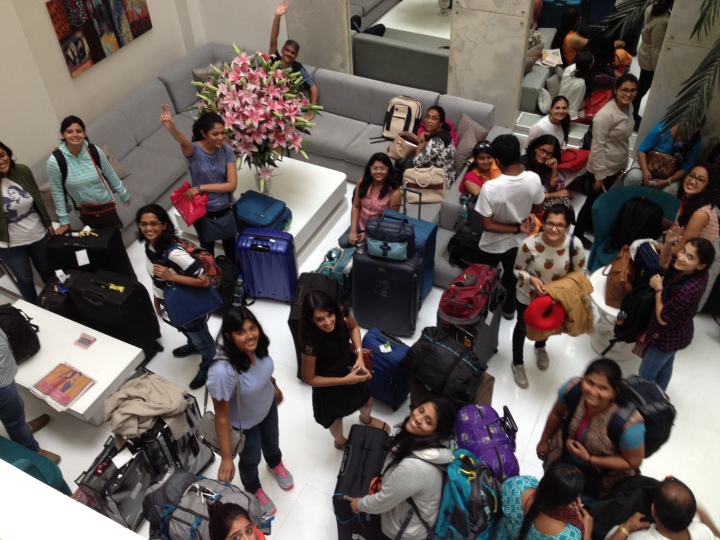
EDUCATION AND FRENCH LANGUAGE
The French Language, Education and Vocational Training (CLEF) service at Institut français India (IFI) has three main objectives, as defined by the French M
inistry of External and European Affairs:
International mobility: Cooperation in the field of education between France and India is embodied by the numerous school exchanges that have been established to meet the increasing demand of Indian schools. IFI also promotes international mobility through its two flagship programmes:
The English Language Assistants Programme – In this programme, Indian students are sent to France to teach English in French schools as assistant English teachers for a period of 7 months.
The French Language Tutors in India Programme – Under this programme, French university students are invited to teach French in Indian universities for a period of 9 months.
TEACHING ENGLISH IN FRANCE
Programme “English Language Assistants in France”
You have a good command of English and French. You can:
– Teach English in France.
– Attend classes in French universities.
– Discover France.
You need:
– IELTS (Academic – score 7.5+)
– B1 level of French or a B.A. French
This program of the Ministry of Education in France is managed, internationally and in India, by the International Centre for Pedagogical Studies (CIEP) and the Embassy of France in India. As part of this program, 40 to 50 Indian students are recruited as English language assistants in French public schools. The program allows these Alliance française or Indian university students to experience French language and culture, while providing their schools with their language skills and their rich culture.
The English Language Indian Assistants’ stay in France covers a period of seven months, from 1 October to 30 April of the next year. Appointed to secondary and primary schools, they provide support to English-language teachers.
Applicants must:
- Be an Indian citizen,
- Have student status (enrolled in a university or an Alliance francaise in India)
- Not have benefited from the “Indian English-language Assistants” program in the past,
- Hold a bachelor’s degree (or be enrolled in 3rd year)
- Be under 35 years of age on 1 October 2016.
- Having obtained the IELTS certificate (British Council/ IDP academic test) of English proficiency with a score above 7.5,
- Have a good level of French: minimum certification level B1 (DELF, TCF, TEF, etc.) or have received French B.A. French Honours from an Indian University.
The programme’s objectives:
- Support English-language teaching in French public schools.
- Linguistic and Cultural Discovery, immersion in a professional situation.
- Getting to the pedagogical practices of the French schools, especially for language teaching; assistants must indeed be integrated in schools and build an educational tender in accordance with instructions given by their English teachers.
- Strengthening ties and mutual understanding between French and Indian cultures.
- Education: Assistants are advised to attend classes, insofar as their professional obligations allow, at a French university.
For more information contact Jatinder Singh at jsi@ifindia.in(link sends e-mail)
ENGLISH LANGUAGE ASSISTANTS PROGRAMME IN FRANCE:
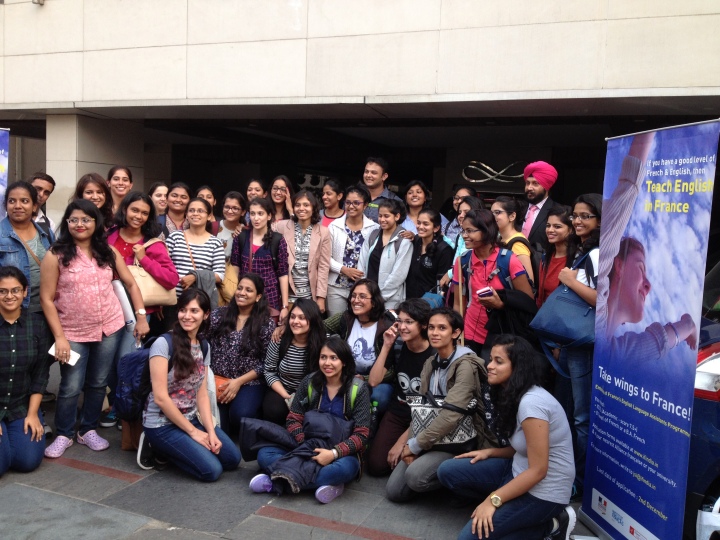
The Embassy of France and Institut français India are proud to announce this year’s
English Language Assistants programme in France:
79 Indian students selected for the academic year
October 2017 – May 2018
New Delhi, 08 June 2017
The French Embassy in India is happy to send 79 young Indian students to France, from October 2017 to May 2018, under the English Language Assistants programme supported and financed by the French Ministry of Education.
The worldwide assistants programme gives the opportunity to 6500 students from 60 different countries to spend one academic year in a school abroad. This programme was launched 20 years ago between France and India. In the framework of their bilateral cooperation in education, France and India have agreed to support the mobility of students, encouraging the internationalisation of their higher education training courses.
The 79 Indian students taking part in the teaching experience in France have been selected on the basis of their outstanding level of both French and English languages. They will be assisting English language teachers in primary, secondary and higher-secondary schools in France, by offering them a rich and dynamic understanding of a foreign language throughout the whole academic year. They will help develop links between French and Indian schools, teachers and students. They will also discover a new country, a new culture, while sharing their own culture with their students.
Students will gather In Delhi for an Information and Training Day led by the French Institute in India on 17 September 2017. They will also leave to France that evening.
QUAKE OF M6.3 – NEAR THE COAST OF WESTERN TURKEY
| Magnitude | 6.3 |
| Date-Time |
|
| Location | 38.870N 26.373E |
| Depth | 5 km |
| Distances |
|
MEDIATHÈQUES XXI: THE OTHER LIBRARY AFTERNOTES
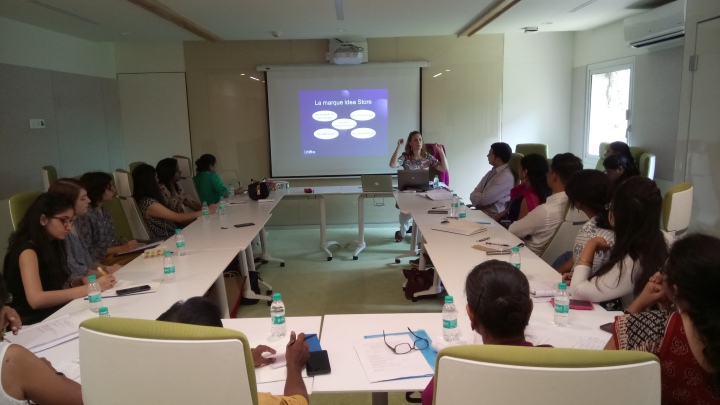
Libraries play an important role in the mediation of culture and ideas. Yet they often do not have a lot of visibility. As part of its programme “The Other Thought: French-Indian Encounters on Innovation and Creativity”, the Institut français India shed light on the importance of libraries as mediators.
The three-day workshop kicked off on May 9, 2017 where 15 librarians represented 14 libraries in the French network in India. Each presented their work and their challenges through interactive and participative workshops. The workshop brought together librarians from the entire network in a rare face-to-face interaction. Librarians brought forth their expertise to provide non-prescriptive solutions. The workshops – which included enactments, and a comics workshop – kept users (library-goers) at the centre.
On the second day the network of libraries in India, DELNET, hosted the French network of libraries, signaling a promising Franco-Indian cooperation. Deepalaya Community Library, a free, community library managed by author Mridula Koshy that was open to all, provided an example as an open and interactive space. Meanwhile, French expert Heloïse Courty invited participants to imagine “The Third Space Library” – a space for creativity and innovation that was not work or home.
Finally on the third day, participants put their hands to clay modelling to create spaces for a “French Digital Corner” – an existing program that introduce students to France and French culture and ideas.
Finally, these workshops strengthened the connection of the French network of libraries to each other, and also to other libraries in India. Institut français India in term partners with them in their important role in mediating culture and ideas.
INSTITUT FRANÇAIS INDIA PROUDLY ANNOUNCES THE OTHER LIBRARY: MÉDIATHÈQUES XXI
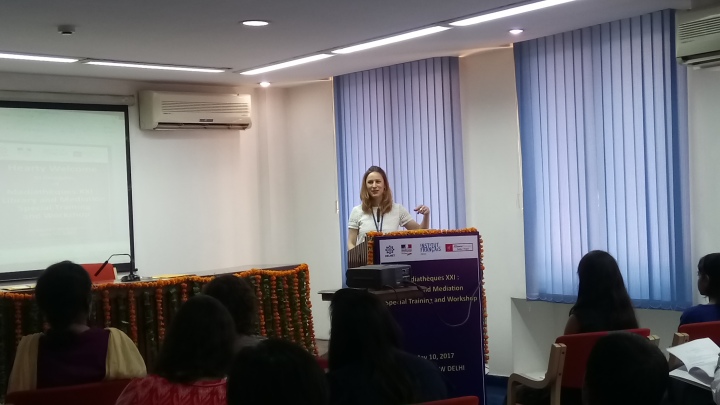
Institut français India proudly announces
The Other Library: Médiathèques XXI
Library and Mediation training and special workshop for actors of libraries in India
in the framework of
“The Other Thought: French-Indian Encounters on Creativity and Innovation”
Tuesday May 9 to Thursday May 11, New Delhi
New Delhi, 9 May 2017
As part of its programme to modernise the French library network in India, Institut français India organised “The Other Library: Médiathèques XXI” – a three-day closed-door workshop on Library and Mediation training. These training sessions, supported by Institut français Paris, Alliance française in India and DELNET, which were conducted by French consultant, Ms. Héloïse Courty, specialised in the modernisation of libraries from May 9-11 in New Delhi.
The Other Library: Médiathèques XXI
Alliance Française Delhi India
Tuesday, May 9, 8:30 AM
DELNET (Developing Library Network)
Wednesday, May 10, 9:30 AM.
Institut français India and Bikaner House
Thursday, May 11 at, 8:30 AM
This program marked the first step of Plan Médiathèques XXI aiming to modernize the French library network in India (Alliance Française Delhi, Institut français of Pondicherry, Centre for Social Sciences and Humanities). Médiathèques XXI: Library and Mediation special training and workshop was a key moment in this plan to enhance cooperation between libraries in India, and the impact of libraries in India.
This event was a continuum of trainings begun in 2016 for media libraries to rethink strategies in terms of means, attendance rates and optimal use of their spaces. The aim was to prepare media libraries to participate in the third edition of Bonjour India (November 2017- February 2018) the platform for innovation and creativity and Indo-French partnership in the upcoming decade.
